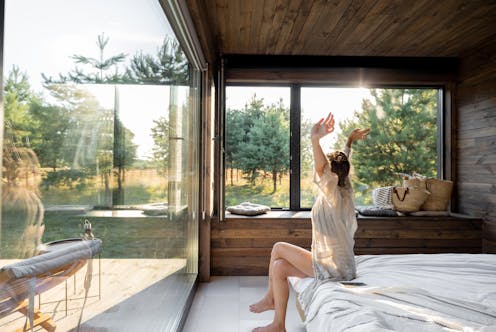Imagine arriving at your hotel after a long flight and being greeted by your own personal sleep butler. They present you with a pillow menu and invite you to a sleep meditation session later that day. You unpack in a room kitted with an AI-powered smart bed, blackout shades, blue light-blocking glasses and weighted blankets.
Holidays are traditionally for activities or sightseeing – eating Parisian pastry under the Eiffel tower, ice skating at New York City’s Rockefeller Centre, lying by the pool in Bali or sipping limoncello in Sicily. But “ sleep tourism ” offers vacations for the sole purpose of getting good sleep. The emerging trend extends out of the global wellness tourism industry – reportedly worth more than US$800 billion globally (A$1.

2 trillion) and expected to boom . Luxurious sleep retreats and sleep suites at hotels are popping up all over the world for tourists to get some much-needed rest, relaxation and recovery. But do you really need to leave home for some shuteye? The rise of sleep tourism may be a sign of just how chronically sleep deprived we all are.
In Australia more than one-third of adults are not achieving the recommended 7–9 hours of sleep per night, and the estimated cost of this inadequate sleep is A$45 billion each year. Inadequate sleep is linked to long-term health problems including poor mental health, heart disease, metabolic disease and deaths from any cause. Many of the sleep services available in the sleep tourism industry aim.























